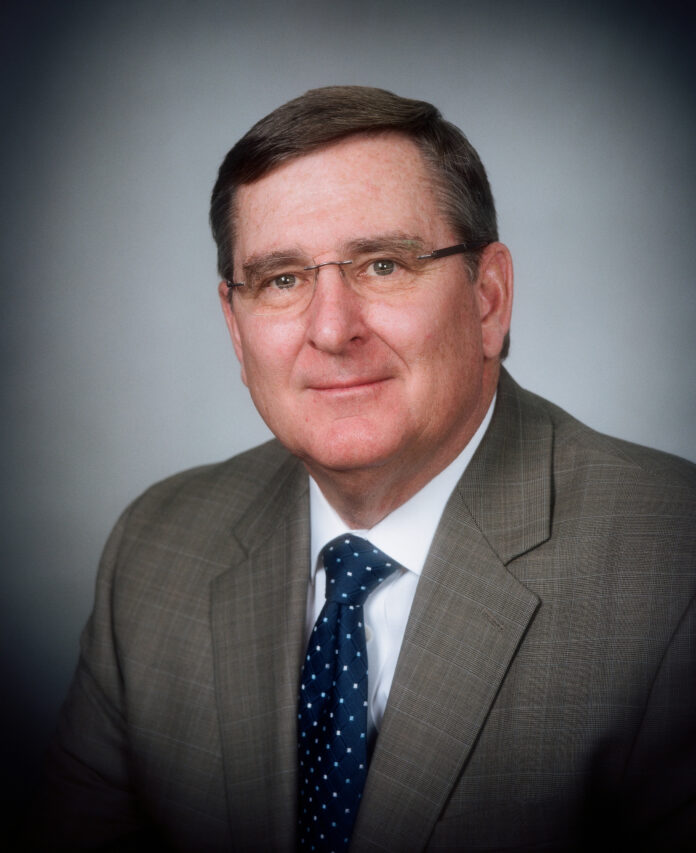By Tommy Taylor
The company operating the Andrews County low-level nuclear waste facility is pushing a bill in the Texas Legislature that is a win-win-win for the company but a big loser for the people of Texas.
If HB 2692 passes the Legislature, Waste Control Specialists will get a huge tax cut, reduce its costs by reducing safety standards and – if a provision in the bill to ban highly toxic nuclear waste is struck down in court and a federal license to store the waste is granted – a new revenue stream. That highly toxic waste will be shipped from around the country on Texas highways to Waste Control’s facility.
The company is selling HB 2692 under the disguise of the highly toxic nuclear waste ban provision that most legal experts agree would be unlikely to survive a legal challenge and would be declared unconstitutional. Waste Control Specialists’ bill would give the company a 67 percent tax cut and reduce safety standards by eliminating requirements that waste be containerized and compacted before being placed in the ground.
Waste Control Specialists’ officials have said publicly that they will continue to push for a license from the Washington D. C.-based U.S. Nuclear Regulatory Commission to authorize the storage of highly toxic spent fuel rods at the disposal facility. Although the storage is meant to be temporary, most industry people believe the spent fuel rods would be stored at the facility for hundreds of years, if not forever.
The legislation would reduce a disposal surcharge that goes to an emergency cleanup fund from 20 percent to 5 percent and eliminate a 5-percent state surcharge on non-federal compact waste. According to the Legislative Budget Board, those surcharge and fee reductions would save WCS $1,524,000 annually.
The LBB’s fiscal note, however, is artificially low as it does not account for a likely increase in waste being sent to the facility and a corresponding increase in the amount of money going from WCS to the cleanup fund and the state. With 20 U.S. nuclear plants currently being decommissioned, WCS will see a huge increase in Class B and C waste coming its way as plants are demolished. WCS is the only company in the U.S. with a permit to dispose of Class B and C waste.
WCS has hired a top Austin lobbying firm to help pass HB 2692 and its identical companion, SB 1046. Both bills have received hearings before their respective committees, with HB 2692 being posed to be voted on by the full House as early as next week.
During the hearing before the Environmental Regulation Committee on March 22, the bill was opposed by oil and gas, business and environmental groups, most of whom pointed out the incongruity of language in the bill that would ban permanent storage of higher-grade waste while the company pursues the spent fuel rod permit in Washington.
A coalition of Permian Basin landowners and oil and gas companies, which includes Fasken Oil and Ranch, opposes increased nuclear waste storage in Andrews County.
The Austin lobbying firm WCS hired, Hillco Partners is being paid a small fortune to get this legislation passed. According to the Texas Ethics Commission, Hillco founder Neal T. “Buddy” Jones and seven other members of his firm will be paid up to $558,190 to lobby on WCS’ behalf.
WCS’ claims of near insolvency are obviously yet another hollow cry of wolf. The company has repeatedly sought to reduce its fees and surcharges since its disposal permit was granted. Last session, an amendment tacked onto an unrelated bill that would have held the fees and surcharges in abeyance until 2021 led to the bill being vetoed by Governor Greg Abbott.
The federal permit WCS is pursuing would allow it to store the spent fuel rods at the Andrews County site until the federal government decides on a long-term storage plan. Currently, nuclear plants are required to store the rods on-site because of concerns about transporting the highly toxic material.
Governor Greg Abbott has opposed the federal permit, saying in a letter to federal authorities that it is “a greater radiological risk than Texas is prepared to allow.” The Nuclear Regulatory Commission will release an environmental impact statement and a safety evaluation report on the application in May but the timetable on a final decision is unknown.
Tommy Taylor is the president of the Permian Basin Coalition of Land Royalty Owners and Operators and is also director of oil and gas development for Fasken Oil and Ranch.




